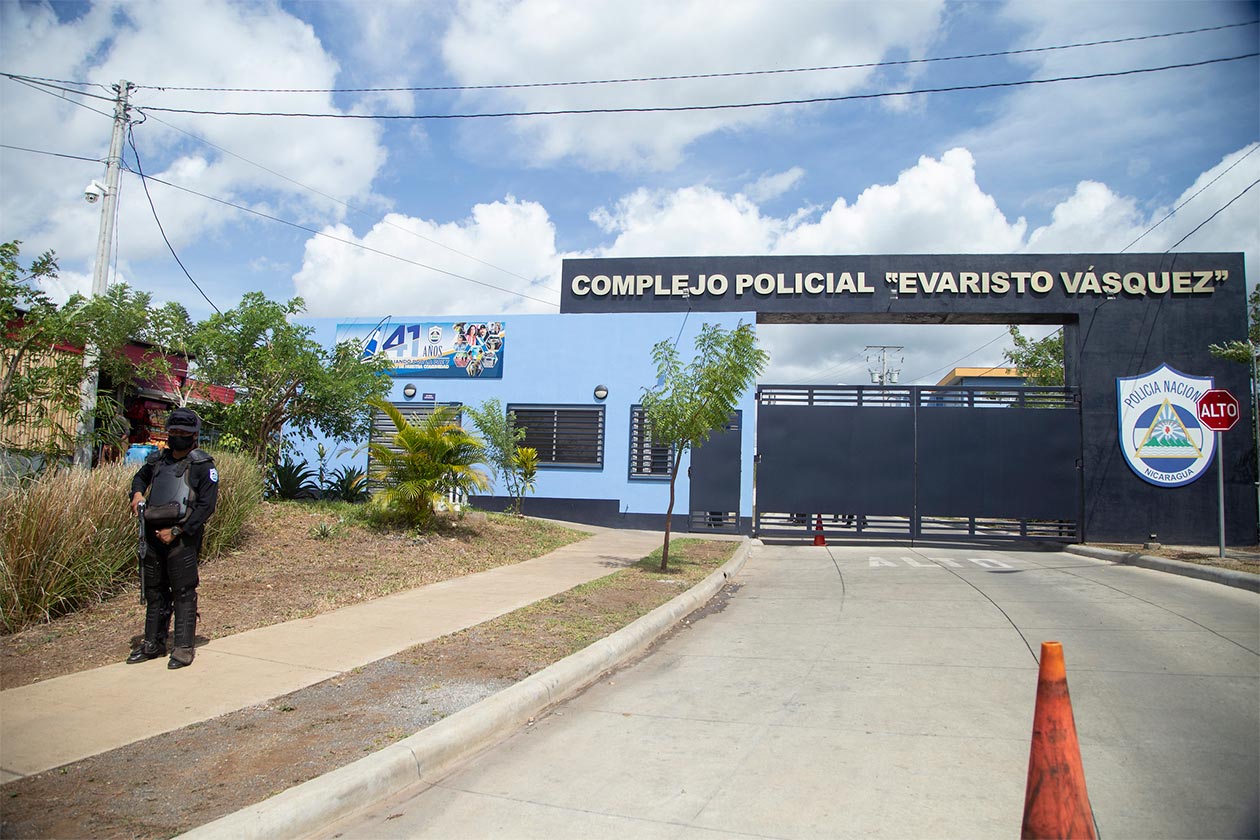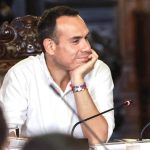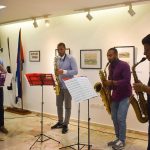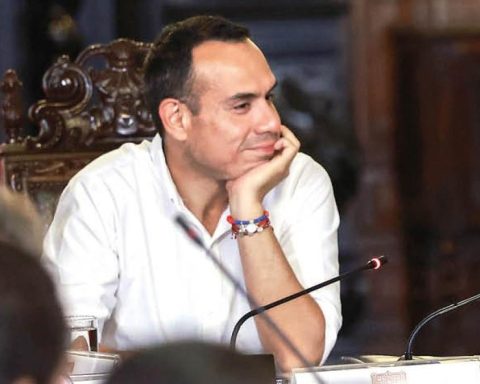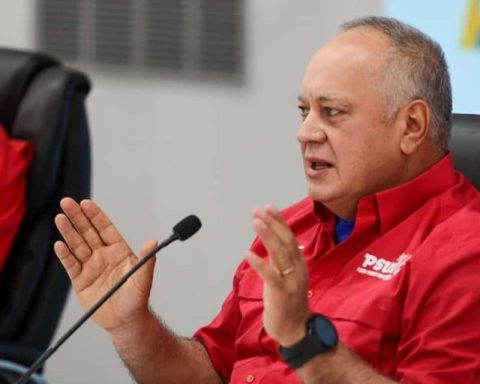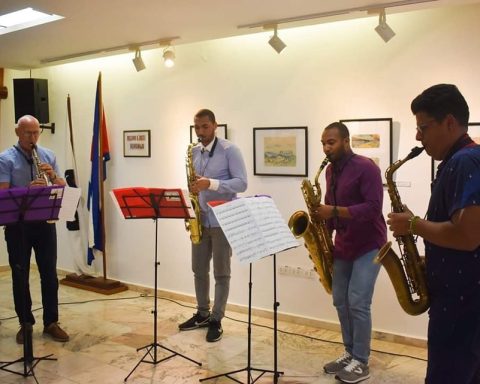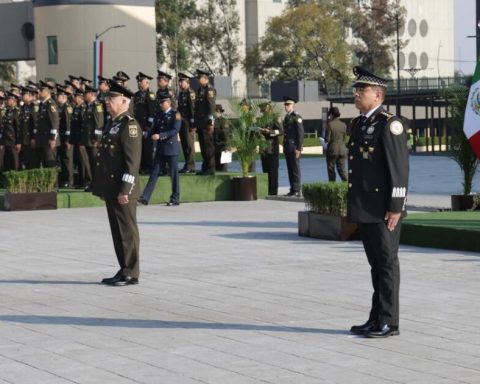In Nicaragua there is no legal or constitutional basis that authorizes the Police or officials of the Penitentiary System to carry out searches that “attempt the dignity of the human person,” such as to which the relatives of political prisoners were subjected kidnapped at the Directorate of Judicial Assistance (DAJ), known as El Chipote.
Last weekend, during a visit after 84 days incommunicado, relatives of prisoners of conscience were victims of humiliation and degrading treatment, as they have denounced.
“Undressing them and forcing them to do squats is something that the relatives of political prisoners have been pointing out in different communications. (The measure) has become a practice that extends, in some way, the torture suffered by political prisoners to the families that come to visit police units or prisons,” said lawyer Wendy Flores, member of the Human Rights Collective Nicaragua Nunca Más, in the program Tonight.
“The visits took place under a climate of great tension and abuse of power because the majority of family members, men, women, and the elderly, were subjected to exhaustive and demeaning searches, violating our physical integrity and privacy. We were forced to undress, do squats, to later be victims of demeaning and mocking comments about the nudity of our bodies,” the relatives of prisoners of conscience said in a statement published this Wednesday.
We deserve, need, and have the right to regularly see and communicate with our family members. I urgently ask for a phone call and that my daughter and I be allowed to exchange letters with my husband. @Jschamorrog. #AltoALaTorture #LibertadYa They are innocent! pic.twitter.com/6RHgQUSYRB
— Vicky Cardenas (@VickyCardenasL) November 23, 2022
Uriel Pineda, a human rights specialist, explained that the abuses against the relatives of political prisoners pursue a double objective. On the one hand, “they are (direct) victims of humiliation, humiliation, degrading treatment”, and at the same time, this has “a reflex effect on the person deprived of liberty” because when they learn that their family member suffers these abuses, “causes extreme anguish, which in some circumstances can amount to psychological torture.”
“On the one hand, we have a direct victim of these practices and on the other hand, it aggravates or accentuates the level of anguish and the level of pressure and the treatment of political prisoners,” explained Pineda. He also considers that the relatives are becoming hostages of the dictatorship, after that in this visit, the Police imprisoned for a few hours the relative of the ex-guerrilla, Dora María Téllez, who had declared a hunger strike demanding the cessation of the system. of prison torture.
“The main objective of the repressive policy of the regime is to silence any opposition voice and naturally, any manifestation of resistance to the dictatorship. Since this has not been effective due to the convictions of the political prisoners, the regime is forced to extend its repressive strategy to the relatives and this is what I understand is happening in these circumstances, ”he said.
Political prisoners urgently need specialized medical attention
The relatives assured that after the prolonged isolation, which was not justified by the Ortega regime, they verified the “serious psychological, physical and emotional effects… Nervous and hypertensive crises, heart conditions, insomnia, loss of appetite, crying and despair…”
Fernanda Guevara, wife of lawyer Róger Reyes, confirmed that he was on hunger strike for 48 days to demand the visit of his daughters. However, she came down with the flu and her stomach became severely inflamed, and she gave up her food deprivation. “He was devastated to continue not to see the girls,” she said.
Reyes weighed 118 pounds during the hunger strike. When he started eating, he regained some weight, but he still looks “too pale,” said his wife, who found him “very emotionally affected.” Guevara took it upon himself to encourage him and assure him that his effort to see his little ones had not been in vain.
The conditions of deprivation of reading, isolation, scheduling of regular visits and solitary confinement, considered torture, are maintained against the prisoners of conscience in El Chipote. Their relatives assured, in the statement, that they were alarmed because the physical deterioration of the political prisoners continues.
“Specialized and timely medical attention is urgently needed to properly diagnose and care for old and new health conditions that threaten the lives of our relatives. Many of these conditions have worsened due to the precarious conditions and psychological abuse suffered by our relatives in El Chipote and different penitentiaries in the country,” they point out.
At the same time, they called on the authorities so that older prisoners of conscience with chronic conditions be transferred to a house-by-prison regime.
Regime keeps political prisoners under torture
For Flores, the Ortega regime has maintained the strategy of torture against political prisoners since their arrest, subjecting them to “totally inhumane conditions, their bodies have changed, the lack of food they have has made them lose more than 30 pounds of weight, the the fact that they cannot have any communication with each other, that they cannot receive visitors, that they cannot have reading material, that they cannot see their children; there is a list of basic fundamental rights that has been taken away from them, precisely, to deepen the suffering and that is why we insist that it is about torture”, he expressed.
The objective, according to the defender of DD. HH., is “to keep them kidnapped, at some point to use them”, but that “every day is an attempt against the life of each one of them. The main right that is at stake is the right to health, to personal integrity and the right to life and that is why we have denounced it before the Inter-American Commission, before the Inter-American Court of Human Rights with the preventive measures so that the Inter-American System does not stop putting its eyes, nor the pressure on Nicaragua advocating for the freedom of each one of them,” said Flores.
Flores acknowledged that despite the conditions of insecurity and fear in Nicaragua, it is essential to maintain the complaint, inform the international human rights mechanisms because “it is the only way we are going to know what conditions they are in (the political prisoners), what is happening and who is responsible for these serious human rights violations, which already border on crimes against humanity”.
Regime intimidates its own Sandinista base
The Ortega repression has also spread to the Supreme Court of Justice (CSJ), in which a purge persists, which has already led to the imprisonment of spokesperson for the institution, Roberto Larios, while other officials are being investigated.
For Pineda, this move by the regime seeks to “endorse” its loyalty and “try to intimidate or inhibit any action of treason, any action of leaking information and the weakest link, it seems to be, the Judiciary and in this sense, it can be understand all this wave of persecution within the Judiciary, which already controls the regime and has to do, precisely, with intimidating the different operators about the cost that betrayal or leaking information can have”.
However, the persecution also persists outside the ranks of the Sandinista Front. This Tuesday, the Police seized to the sociologist and critic, Oscar René Vargas, in Managua. The specialist is a staunch critic of the Ortega dictatorship, noted for his analyzes of the sociopolitical situation.
For the lawyer Flores, if they come to accuse him, it would be precisely for exercising his right to freedom of expression, freedom of opinion and thought; “That they are constitutional citizen rights that the regime has tried to take away from us Nicaraguans and that in this desire, what it has done is criminalize any action, any form of disseminating information.”
